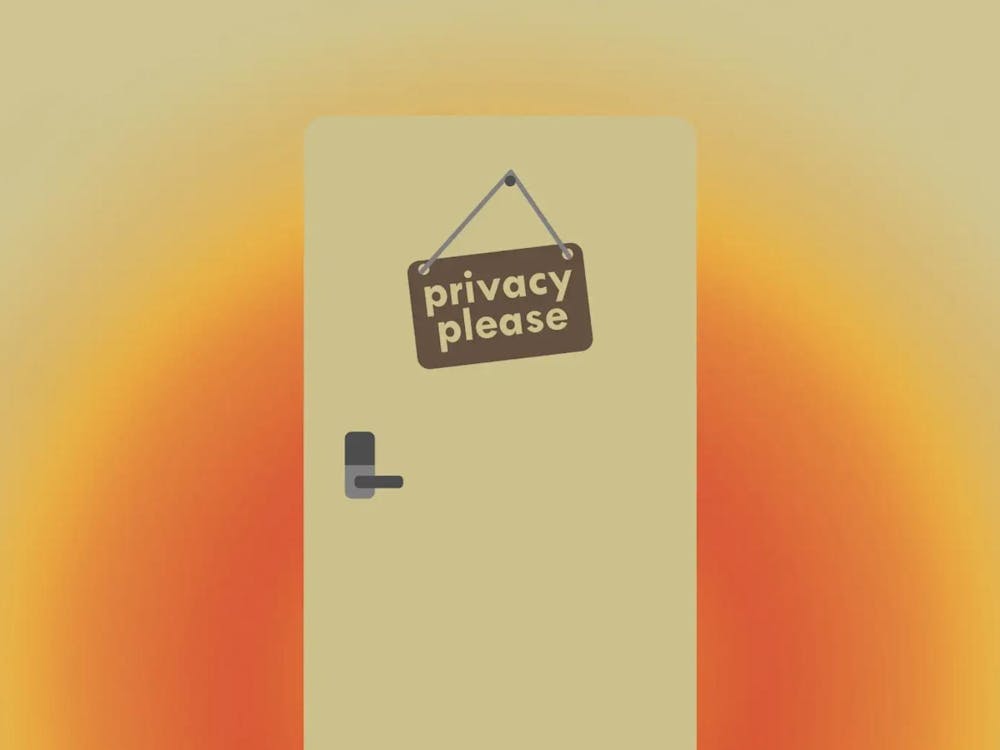One hundred and sixty-one years after his death, Thomas Jefferson can still raise eyebrows.
This time it's not what the liberty-loving patriot said, but how he said it - through his own cut-and-paste version of the New Testament that distills Jesus' life into a scant 82 pages.
Jefferson's reconstruction of the Gospel excludes mention of Mary's immaculate conception and of any miracles Jesus performed, but highlights the ethics Jesus lived by and preached.
While this past Fourth of July heralded the traditional Independence Day combo of barbecues and fireworks, it also ushered in the return of Beacon Press' "The Jefferson Bible: The Life and Morals of Jesus of Nazareth."
Beacon Press, an outfit of the Unitarian church of which Jefferson was once a follower, is far from the first to publish the Jefferson Bible - as it is commonly referred to - nor is its the only printed edition available.
Though published before in the 1950s, the Beacon Press version is the one the clerk at Barnes and Noble will discover should he search the stockroom, just as it is the one that has recast a fraction of the national spotlight back onto Jefferson.
The silent gospel
Over the past century and a half, Jefferson may have found himself resting peacefully during the occasional bout of scholarly silence when no one had a DNA case to make or a historical bone to pick.
And he may have thought he could remain safely tucked under John Adams's shadow for as long as David McCullough's biography of our nation's second president stayed afloat on the bestseller lists.
By now, though, Jefferson should know better. In fact, he probably does.
Outspoken on the issues of freedom and democracy, Jefferson remained mum when it came to his personal religious beliefs.
"Unitarians claim Jefferson as one of theirs ... other more conservative Jefferson scholars claim that he was at least at times an Orthodox Christian believer," said historian Garrett Sheldon, chairman of the department of social and behavioral sciences at the University of Virginia College at Wise. "Religion and politics was maybe more controversial then than it is now."
Had Jefferson espoused a traditional Christian viewpoint he could have been criticized for sympathizing with the Federalists, his political opponents who favored an established church.
However, Jefferson also would have come up short had he proclaimed himself a Unitarian, a religion founded upon the rejection of strict Christian dogma. He may have been accused of being an "infidel too impious to be president," writes Unitarian minister Forrest Church in his introduction to the Beacon Press edition.
As for how Jefferson would view the modern-day publication of his private manuscript, Church concedes with a hardy laugh: "He would have been completely opposed to the entire process."
Lost and found
Despite Jefferson's intent to keep his Bible to himself, the project that fascinated the former president in his twilight years also appealed to two key figures who "discovered" it in the latter half of the 19th century.
In 1886 Cyrus Adler found the book, which had been passed down through the Jefferson family. He bought the original copy and donated it to the National Museum - now the Smithsonian Institution - where Iowa Congressman John Lacey happened upon it at the turn of the century.
It was Lacey who initiated the idea of publishing the book, introducing legislation in Congress that would fund the printing and distribution of the Jefferson Bible to all senators and representatives at the start of their terms.
Lacey saw the book as an important "moral basis for representatives," said Bellevue University economics professor Judd Patton. "For a good government, we need to have good leaders with moral principles."
For unknown reasons the Government Printing Office stopped publishing the book in 1957, and its distribution to new congressional members ceased. With that in mind, and an entrepreneurial spirit tugging at him, Patton published his own reader-friendly edition of the Jefferson Bible through the independent Libertarian Press in 1996 - a copy of which he gave to every member of the 105th Congress.
While Patton says demand for his book has increased greatly on Amazon.com in the past month, he also plans to continue the tradition of sending copies to new members of Congress. But he does have one regret.
"I feel bad about it," he says. "I didn't send a copy to Clinton and he probably could have used it."
The word according to Jefferson
The turn of events that landed Jefferson's Bible amid the Congressional bastion of governmental leadership is but one more irony that follows the separation-of-church-and-state supporter well beyond the grave.
An added twist is that the manuscript for his bible remains fodder for public debate.
"It's not a typical enterprise," says Harry Gamble, a religious studies professor at the University, of Jefferson's creation. "Most people feel obliged to take the text more or less as it has been transmitted."
In terms of Biblical scholarship, "it really is not very useful at all if one is trying to understand the New Testament or early Christianity," Gamble says. "I think the Jefferson Bible is interesting chiefly as an example of western intellectual history."
But for ReverendChurch, who eagerly flipped through pages of the Jefferson Bible at a young age and turned to Unitarianism largely because of Jefferson, the work symbolizes a common thread for many readers of the Bible.
"In my belief everyone does what Jefferson did. Everyone has what they would call 'red-letter passages,'" passages that resonate with one's "own sense of meaning," he explains.
Whatever Jefferson intended with his Bible, he made his feelings about religion clear when he wrote in the Virginia Statute of Religious Freedom: "Our civil rights have no dependence on our religious opinions, any more than our opinions in physics or geometry"




